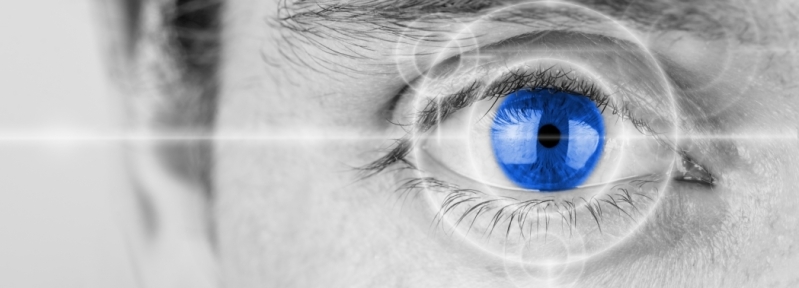
Remember the Six Million Dollar Man? Well, he had bionic enhancements that allowed him to perform miraculous physical feats, although one does wonder with the perils of inflation, just how many enhancements would he be able to obtain in this day and age for six million dollars. Perhaps a head full of hair transplants, some plastic surgery to make him look younger, and, well, maybe an enhanced skeletal structure in some parts here and there. On to something that is far more realistic, and more importantly, viable - the very first fully implantable bionic eye. If this particular technological marvel by the University of New South Wales Australia were to function well in its tests, then this would be a landmark occasion that might just provide millions of individuals around the world with their sight.
Known as the Phoenix99 bionic eye, this fully implantable system is an unprecedented breakthrough when it comes to neural stimulation technology. It is not just theoretical in nature, but it has been demonstrated - and successfully, to boot, in pre-clinical work, made possible by a team of elite surgical experts from Sydney. In other words, this offers patients the best shot at experiencing the ability to see once again compared to any existing restoration technologies. The team behind the Phoenix99 bionic eye has also been given a boost thanks to additional funding (to the tune of AU$1.1 million) received so that human implantation trials can be carried out. However, the team did mention that they will need another AU$10 million over the next half decade in order to bring the research to the next level so that the bionic eye can enter mainstream clinical practice.
Gregg Suaning, who is one of the key people behind the bionic system, shared, "We were really excited by the first trial because it proved the technology and implementation technique works. Patients 'learn' to use the technology, in the same way a person implanted with a cochlear ear implant 'learns' to hear electrical impulses." This is not a new research at all, as bionic eye technology work done by the team dates all the way back to 1997 - that is close to a couple of decades ago.
Phonenix99 devices are being lined up for human trials, and these are deemed to be completely implantable with an unprecedented level of visual quality offered than ever before. There is the outline of a plan so that the Phoenix99 can be implanted into 12 patients over the coming two years. Each surgery procedure will require anywhere from two to three hours, and there will be minimal scars involved, as only a small disc behind the ear will leave a scar, where that disc sends both power and data to the device, which in turn delivers electrical impulses to the eye.
Future Science also reports that users will also need to put on a pair of glasses that have been outfitted with a tiny camera, and these glasses intend to assist in the stimulation of nerve cells that are located in the patients' retinas, before sending over signals to the brain's visual cortex.
The prototype so far comprised of an array of two dozen electrodes, replete with its fair share of external electronics so that patients can check out spots of light known as phosphenes. These phosphenes will look brighter whenever still objects are closer. One of the implant recipients, Dianne Ashworth, gushed, "It's been amazing. The more I've used it, the more natural it feels."







